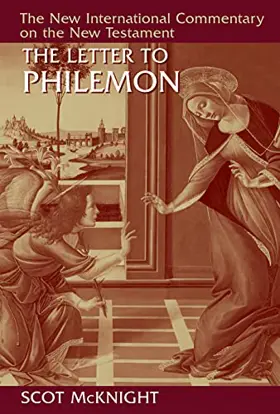

The Letter to Philemon
in New International Commentary on the New Testament
Publisher
Eerdmans
Published
10/5/2017
ISBN-13
9780802873828
Paul's letter to Philemon carries a strong message of breaking down social barriers and establishing new realities of conduct and fellowship. It is also a disturbing text that has been used to justify slavery. Though brief, Philemon requires close scrutiny.
In this commentary Scot McKnight offers careful textual analysis of Philemon and brings the practice of modern slavery into conversation with the ancient text. Too often, McKnight says, studies of this short letter gloss over the issue of slavery—an issue that must be recognized and dealt with if Christians are to read Philemon faithfully. Pastors and scholars will find in this volume the insight they need to preach and teach this controversial book in meaningful new ways.
In this commentary Scot McKnight offers careful textual analysis of Philemon and brings the practice of modern slavery into conversation with the ancient text. Too often, McKnight says, studies of this short letter gloss over the issue of slavery—an issue that must be recognized and dealt with if Christians are to read Philemon faithfully. Pastors and scholars will find in this volume the insight they need to preach and teach this controversial book in meaningful new ways.
Collections
This book appears in the following featured collections.
- New Testament Commentaries & Monographs by Princeton Theological Seminary
- Nijay Gupta's Top NT Commentaries by Nijay K. Gupta
- Recommended New Testament Commentaries for Evangelical Pastors by Thomas R. Schreiner
Reviews
An excellent, up-to-date technical commentary.
[Full Review]
Kudos to Scot McKnight for insisting that Philemon be a separate volume so that it could be unpacked more fully. This volume does have a very different feel than Fitzmyer's Anchor Bible commentary on Philemon, focusing on the social aspects surrounding the text of Philemon, and connecting that to the present where the institution of slavery doesn't look the same, but is still part of the cultural conversation which needs to be unpacked and into which Philemon can speak in a unique way. I wish this had been available when I preached through Philemon in 2016.

